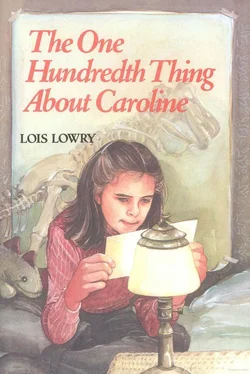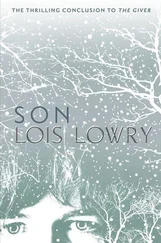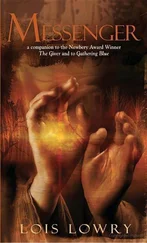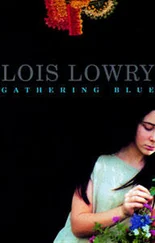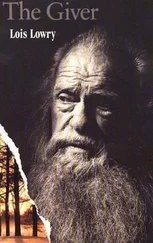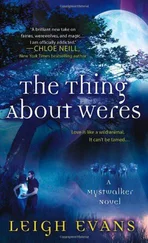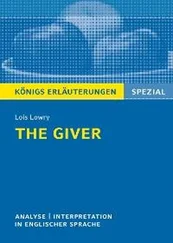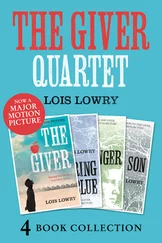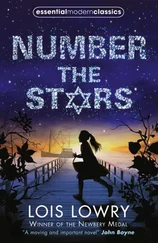Lois Lowry - The One Hundredth Thing About Caroline
Здесь есть возможность читать онлайн «Lois Lowry - The One Hundredth Thing About Caroline» весь текст электронной книги совершенно бесплатно (целиком полную версию без сокращений). В некоторых случаях можно слушать аудио, скачать через торрент в формате fb2 и присутствует краткое содержание. Жанр: Старинная литература, на английском языке. Описание произведения, (предисловие) а так же отзывы посетителей доступны на портале библиотеки ЛибКат.
- Название:The One Hundredth Thing About Caroline
- Автор:
- Жанр:
- Год:неизвестен
- ISBN:нет данных
- Рейтинг книги:3 / 5. Голосов: 1
-
Избранное:Добавить в избранное
- Отзывы:
-
Ваша оценка:
- 60
- 1
- 2
- 3
- 4
- 5
The One Hundredth Thing About Caroline: краткое содержание, описание и аннотация
Предлагаем к чтению аннотацию, описание, краткое содержание или предисловие (зависит от того, что написал сам автор книги «The One Hundredth Thing About Caroline»). Если вы не нашли необходимую информацию о книге — напишите в комментариях, мы постараемся отыскать её.
The One Hundredth Thing About Caroline — читать онлайн бесплатно полную книгу (весь текст) целиком
Ниже представлен текст книги, разбитый по страницам. Система сохранения места последней прочитанной страницы, позволяет с удобством читать онлайн бесплатно книгу «The One Hundredth Thing About Caroline», без необходимости каждый раз заново искать на чём Вы остановились. Поставьте закладку, и сможете в любой момент перейти на страницу, на которой закончили чтение.
Интервал:
Закладка:
"I guess so," she said uncertainly.
"Mr. Keretsky," asked Stacy, "why do you live all alone? Don't you have a family?"
He was silent for a minute. He sighed and shifted in his chair, still grasping Caroline's hand. "I don't want to tell a sad story on such a pleasant night," he said. "So I will tell only a little of what happened to me, and you must not let it make you feel sad, because it is many years ago, and now you see how things are: we are all happy here together!
"When I was a young man—you will never believe this, Caroline, but it is true—I was a painter. I was not a great painter, but I was a good one, I think. This was in Europe. And then, in Europe, came the war.
"Now, I am not going to talk about the war, because you all know that war is a bad time. I lost my family."
Caroline held tightly to his hand. "Did you have children?" she asked.
He cleared his throat. "A little girl. She was about your age, Caroline, though she was not as—what would the word be?—incorrigible? I don't mean that as a bad thing. In fact, if I may borrow your mama's way of speaking, it is the ninety-fourth thing that I love about Caroline, I think: that she is incorrigible."
"Me too," said Joanna Tate from the end of the table.
Gregor Keretsky went on. "Now, that was the sad thing, that my family—my parents, my wife, my daughter—were gone. But it is long ago, and I will not dwell upon that. I will tell you of the other thing that I lost. Can you guess what it is, Caroline?"
She nodded in the dark. "Colors," she said, squeezing his hand. "You lost colors. I think that's very sad."
"I thought so, too, at the time, because of course I could never paint again. But as I told you, I was not a great painter. The doctors could find no reason that my colors had disappeared. They wrote about me, in journals and medical books.
"I had to find another profession. And this is the happy part. I had always been interested in science, and so I went back to the university, and after a long time of study I became a paleontologist. The bones I study—like your little mastodon chip, Caroline—have no colors. We don't have any way to know what color the great beasts were. Maybe the mastodon was pink? Yellow?"
Caroline giggled, picturing a Walt Disney version of the mastodon. "Blue with yellow polka dots?" she suggested.
"Perhaps," said Gregor Keretsky. "We will never know. And this is my story: why I have no family, Stacy; why I am a paleontologist instead of a painter; and why, even, I have a funny pair of socks. You see it is a story with a happy ending, even though there are sad parts to it."
"Maybe all of our stories are similar," suggested Joanna Tate. "I always wanted to be a poet. Instead, I'm a bank teller. I would never have been a great poet—"
"You're a good poet, Mom," said Caroline defensively.
Her mother laughed. "Well, I'm a better bank teller. And who knows? Maybe someday I'll be a bank president!"
"I never wanted to be anything but a paleontologist," said Caroline. "And I will be a paleontologist, I'm sure of it."
"I'm sure of it, too," said Gregor Keretsky.
"And me," said Stacy from her side of the table, "I've always wanted to be an investigative journalist. I will be, too: the best one in the whole world!"
"Good for you, Stacy," said Gregor Keretsky. "And how about you, J.P.? You are sitting so quietly."
Caroline couldn't see J.P. through the darkness—only his outline—but she could tell that his head was still in his hands. He lifted it at Mr. Keretsky's question.
"I don't know," J.P. said gloomily. "I always thought I was an electronics expert. But right now I'm beginning to wonder."
Frederick Fiske had been silent. She could see the outline of his tall figure, so Caroline knew that he was still there, but he hadn't said a word. Now he finally spoke.
"I have very wet feet," he said. "No offense, Caroline; I know it was an accident. But they're beginning to get cold. Maybe it will take my mind off them if I tell you my story."
"TATE SPILLS MILK: FISKE SPILLS BEANS," announced Stacy.
"Right," said Frederick Fiske. "I'm going to spill the beans. I'm involved in a project, and up till now I haven't told anyone."
Caroline edged nervously away from Frederick Fiske, closer to Gregor Keretsky. She shuddered. Outside, the growling thunder and the drenching rain continued relentlessly.
14
"Is there any more coffee, by any chance?" asked Frederick Fiske.
"A little," said Joanna Tate, "but it's probably not hot, since the electricity's off. Here, I'll get you some, if you don't mind lukewarm."
They could hear her fumble in the darkness, groping her way to the coffee pot. "Ouch," she said as she bumped into a chair. "Hope I don't miss your cup. I can barely see."
She poured the last of the coffee into Frederick Fiske's cup and then pulled up a chair next to his. "I'm not going to try to find my way back to the other end of the table," she said. "I'm already covered with bruises."
Frederick Fiske sipped and spoke. "As I've told your mother, I teach at Columbia. Professor of history. Not a great professor of history," he added, chuckling, "but a good one.
"I'd been teaching there for fifteen years. Teaching the same stuff year after year, and frankly—I hope you don't mind the analogy, Gregor—it was beginning to lose its color for me. I was bored.
"I lived up near Columbia, on Riverside Drive—by myself; I've never been married—and last year, in the evenings, when I should have been correcting papers, I found that I was jotting down notes and ideas for a novel. I've always been a great reader."
"Me too," said Stacy.
"Me too," said Joanna Tate.
"Shhh," said Caroline. "I want to hear what comes next."
"Well, this novel that was beginning to take shape in my head and in my notes had nothing at all to do with history. You'd think that with my background—I have a Ph.D. in medieval history, after all—"
"An interesting period, the medieval," said Gregor Keretsky.
"Not as interesting as the Mesozoic," Caroline reminded him.
"Shhh," said J.P. "I want to hear what comes next."
"It's very contemporary. And—this is kind of embarrassing—it's a thriller. A spy novel. It has all kinds of murder—right now I'm doing research on obscure poisons—and, of course, it includes, excuse me, sex."
"Of course," said Stacy. "That's essential."
"Shhh," said Gregor Keretsky. "I want to hear what comes next."
"Well, I won't try to retell the plot, because it's so terribly convoluted. But it really seemed pretty good, at least to me. So last year I wrote up a whole outline and a couple of chapters and a synopsis of some other chapters, and I sent it all to an agent."
"Carl Broderick," said Stacy and Caroline in unison.
"Yes," said Frederick Fiske in a puzzled voice. "How on earth did you know that?"
They were both silent. "Lucky guess," Caroline finally mumbled.
"Shhh," said J.P. "Go on, Mr. Fiske. What happened?"
"Broderick thought it was terrific. He took it to a publisher, and the publisher thought it was terrific. They gave me a contract.
"But it was, as I said, a little embarrassing. There I was in this very academic community, which looks down its nose at popular novels. So I didn't tell anyone I was doing it. Finally it became so time-consuming that I took a year's leave of absence from Columbia, secretly rented this apartment, and holed up to finish the writing. All my colleagues think I'm in France, doing some research on the extortionate taxes in Paris in 1437."
"Sounds boring," said J.P.
"Shhh," said Caroline.
"Well, that's about it. The novel's done, and I'm working on revisions—I have to have them finished by May first, so time's getting a little tight. But Broderick's already shown the manuscript to some movie people, and there's a good chance that the film rights will be sold. There's a rumor that Dustin Hoffman wants to play the lead character.
Читать дальшеИнтервал:
Закладка:
Похожие книги на «The One Hundredth Thing About Caroline»
Представляем Вашему вниманию похожие книги на «The One Hundredth Thing About Caroline» списком для выбора. Мы отобрали схожую по названию и смыслу литературу в надежде предоставить читателям больше вариантов отыскать новые, интересные, ещё непрочитанные произведения.
Обсуждение, отзывы о книге «The One Hundredth Thing About Caroline» и просто собственные мнения читателей. Оставьте ваши комментарии, напишите, что Вы думаете о произведении, его смысле или главных героях. Укажите что конкретно понравилось, а что нет, и почему Вы так считаете.
